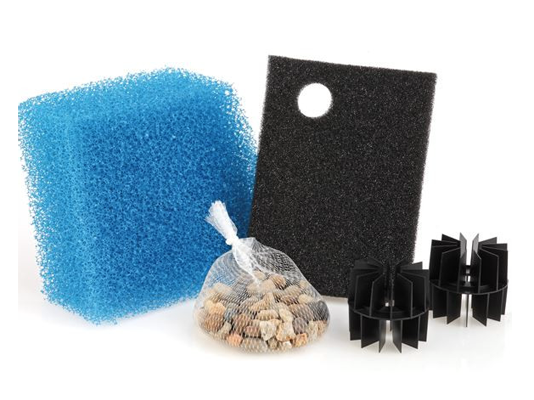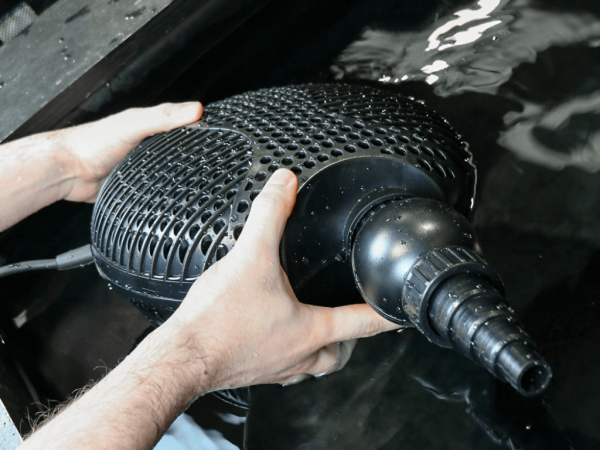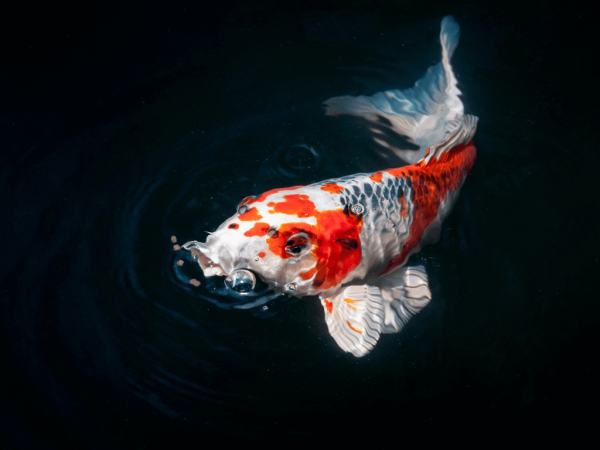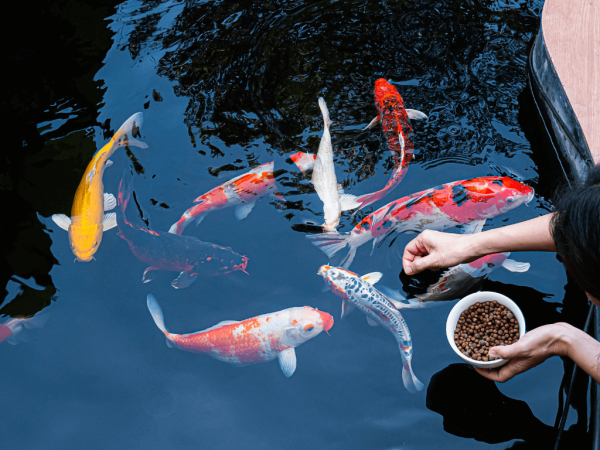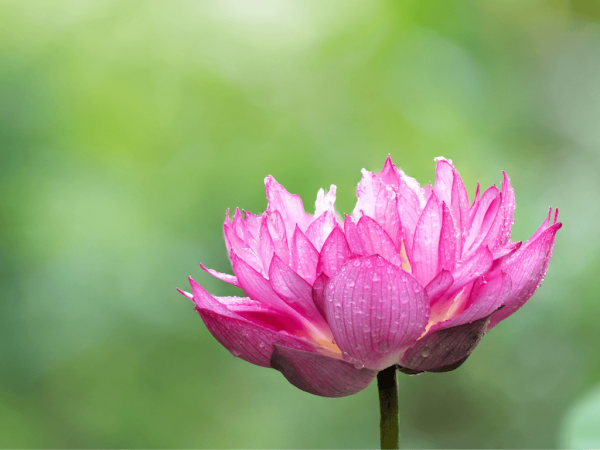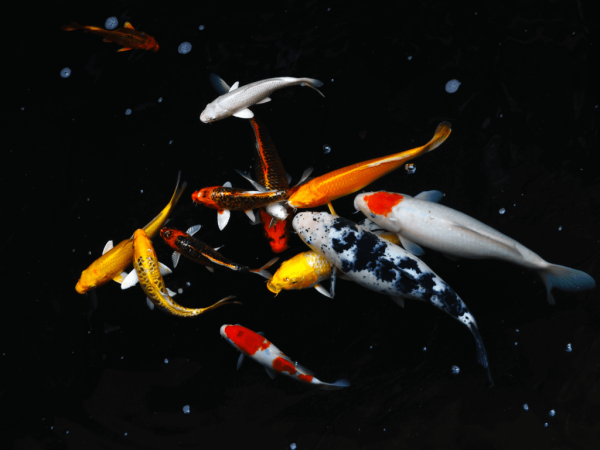What is the best pond filter media?
There are three main types of filter media - mechanical, biological and chemical. All are designed to do a specific job and they can be used in isolation or in combination.
Mechanical filtration
Mechanical filtration traps particles that pass through it and clears the water. It’s the most basic form of filtration and the one that most people can actually see working as it can turn dirty water that is full of particles into clear water.
Lots of different materials can be used in mechanical filtration but the most common are sponges or filter foams, floss, wadding or filter wool. Drum filters are also mechanical filters that pass water through a fine, self-cleaning screen mesh. Clean water passes through the drum and dirt is left outside it, and flushed to waste.
Mechanical filter media needs the most maintenance as it’s at the front line of filtration. Sponges and filter floss trap more and more particles until they block up with dirt, either cutting off flow to the rest of the filter or sending water to a bypass. When mechanical filtration is dirty it must be cleaned or replaced with new, and its the main reason that we clean our filters.
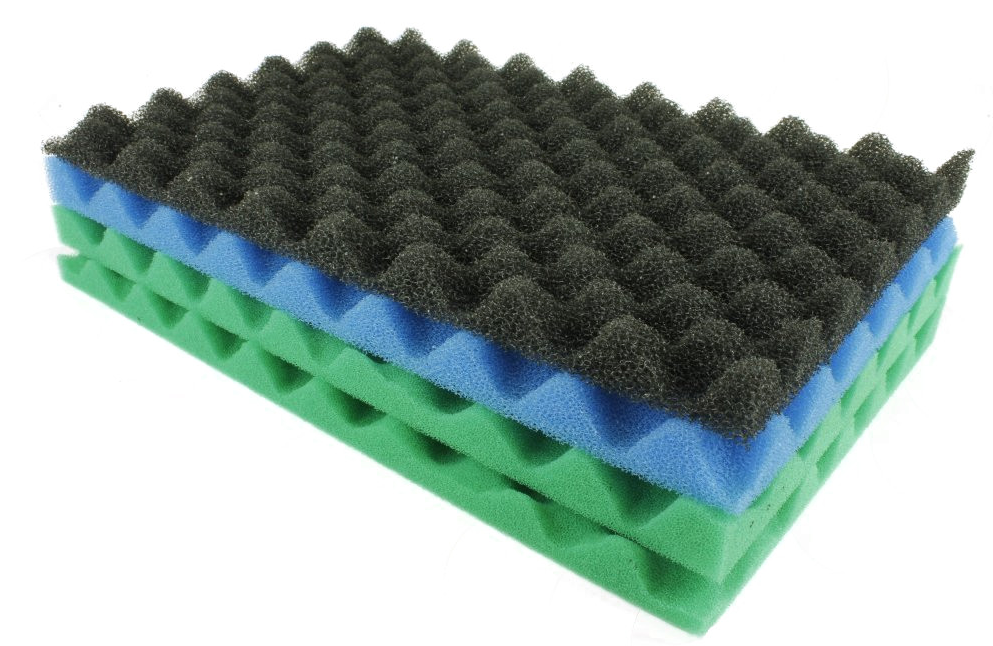
Biological filtration
Biological filtration provides a home for live, beneficial bacteria to colonise. Its bacteria that make fishkeeping possible as fish produce waste through their gills yet that waste will poison them if it’s not dealt with. In nature, fish waste is either diluted by the sheer size of the lake or washed away in rivers and streams.
In a pond, we use bacteria to convert ammonia from fish into nitrite then nitrate. Without these tiny, tireless helpers converting fish waste we wouldn’t be able to keep so many fish in our ponds and they would die from poor water quality.
There are lots of different types of biological filter media from large plastic pipes to small plastic beads, ceramic shapes to jagged rocks, coarse matting to circles, crosses and sponge. A sponge can work both mechanically and biologically and is often the sole form of filter media in very basic filters.
Surface area is key to effective biological filter media as it needs millions of tiny pores for the bacteria to stick to and find a home. Mechanical media should always be used beforehand to remove dirt particles as they will clog the tiny holes and smother the bacteria.
The amount of surface area varies from media to media with many conflicting views on which one is best. As good as any bio media is, when you first buy and install it its sterile, so takes time to mature and build up that layer of beneficial bacteria.
Lack of bacteria is the number one cause of fish deaths in ponds. To combat this seed new filters with bacteria, test water, and build up stocks slowly. Live bacteria need oxygen from flowing water pond filters must always be running, 24 hours per day.
If running separate mechanical and biological filtration the mechanical media can be cleaned and exchanged regularly, but the biofilter must always be mature and uninterrupted. If you throw away your bio-media or wash it under the tap, you lose the bacteria and it’s them that are the life support system for your fish pond.
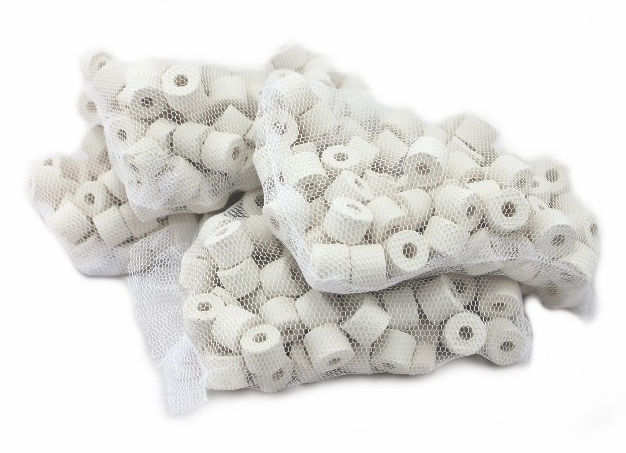
Chemical media
Chemical filtration is less common in pond filters but it can be used to do a specific job. Carbon, Zeolite and Phosphate remover are three examples of chemical media and they are added to the filter to soak up impurities like dyes and odours (carbon,) ammonia (zeolite,) or phosphate.
Pond water turns yellow over time from algae, fish food and biological filter processes, so carbon can act as a final water polisher to give you gin clear water, but it must be used in conjunction with mechanical and biological filtration. Zeolite can be used in water quality emergencies to remove ammonia from the water although it shouldn't be used long term as it starves the bacteria of their food source. Phosphate and nitrate removers do exactly that and are most frequently used to help cure algae issues in ponds.
All chemical filter media has a finite life and once it’s saturated it must be removed and thrown away. Change chemical filter media on a monthly basis.
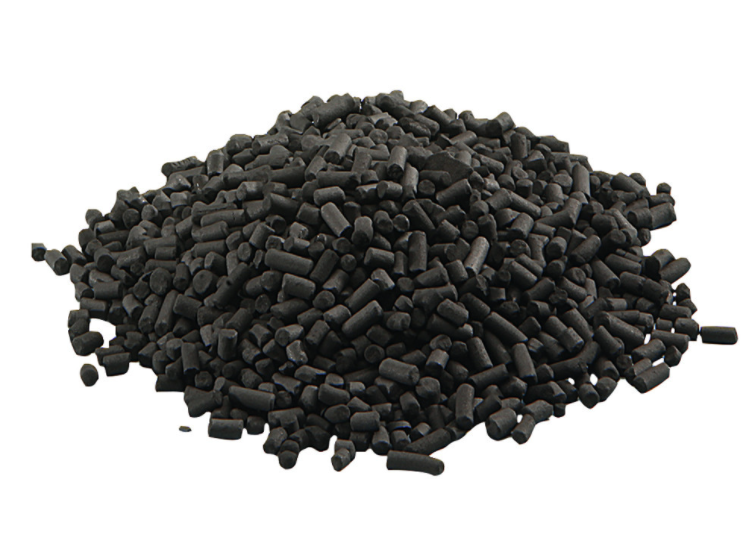
So which is the best pond filter media?
The best filter media is a combination of mechanical media and separate biological media. The mechanical media traps physical waste and the biological media converts liquid waste. Choose a pond filter with separate mechanical and biological media, with room to add a bag of chemical media if needed.




